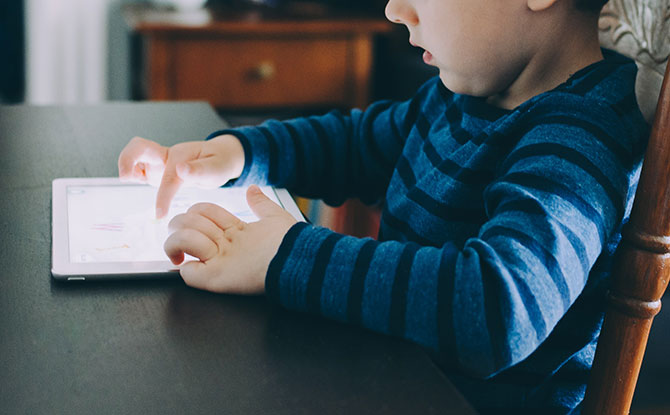
Screen time – love or hate it as a parent? Many of us agree it is a double-edged sword, it can educate, entertain yet too much of it can be detrimental to our eyesight and health, as well as interpersonal relationships.
What can we do to encourage healthy device usage and how can we limit our child’s screen time? You are not alone in struggling with excessive screen time. If you are troubled by it and want to make changes to this habit, here’s a pat on your back as you are acknowledging that this problem needs to be corrected!
Read on for 5 steps to take to manage your child’s screen time.
Ways To Manage Your Child’s Screen Time
1. Understand that your child is not equipped to moderate screen time
Have you noticed how children are drawn to the screens – no matter what language the programme is in? Moving images attract them and the instant gratification stimulates the feel good hormone called the dopamine which can result in an addiction.
FREE FOR LITTLE DAY OUT PARENTS: Sign Up for a Free Trial with ACT 3 Academy to Find Out If Drama Classes are Right for Your Child
3 Recycling Adventures: Fun Ideas For Kids & Families
1:1 & Small Group English Lessons: How to Get Personalised, English Help
Unfortunately the brains of our little digital natives are not well-developed enough to moderate screen time, this means they usually do not know when to stop nor will they think it is detrimental. Excessive screen time results in a sedentary lifestyle and may even cause premature thinning of the brain’s cortex.
As parents, our roles include protecting our children from forming bad habits. One of the prevalent habits these days is too much screen time. Putting a limit to it is our responsibility and a need we fulfil to limit a potential addiction.
2. Determine appropriate amount of screen time
According to the child’s age, determine the appropriate length of screen time.
Key guidelines were developed by KKH-led programme by SingHealth Duke-NUS Maternal and Child Health Research Institute on amount of screen time appropriate.
Here is a summary of screen time guidelines:
- Below 18 months : Screen time is discouraged
- Above 18 months: Maximum of 1 hour of screen time per day, avoid screen 30 minutes before bedtime
- Preschoolers 3 to 7 years: Maximum of 1 hour of screen time per day
24 hour activity guidelines are published here.
For children above 7, American Academy of Pediatrics recommends screen time of no more than 2 hours per day.
In addition, children should also take frequent eye breaks every 20 minutes when looking at a screen and working on near work such as written assignments. Screen time should always be balanced with physical activity, particularly outdoors.
3. Start a “Device” or Technology contract

Next, sit your child down to discuss the issue of excessive screen time. If it is currently not a problem it is still advisable to speak about potential screen time use especially before handing the child his or her own mobile phone, tablet or laptop.
Agree on the hours allowed, based on the guidelines and recommendation by paediatricians and include the kind of content allowed on the devices.
An example of a contract can be found here and here.
4. Use an external app for monitoring
To ease the monitoring of devices, you can use apps such as Google Family Link, Qustodio, Fami Safe, Screen time. These can be helpful in limiting time spent on the internet or Social Media even when you are not with your child.
However, seasoned parents have warned that these apps can be easily overcome with the use of VPNs bypassing the limits. Hence, do ensure that an open conversation is in place to discuss the abuse of privileges. In our family, we do state clearly that screen time is a privilege and any abuse and overuse will not be condoned.
Consequences such as removal of devices have to be in place if rules are broken. After all, we are the only ones safeguarding our children’s internet safety and physical well-being.
5. Model your own screen time
If we want our children to get off the screen, we also need to model the same behaviour of getting off our mobile devices!
Screen-free time should be mandatory during meal times, family gatherings as well as bedtime. We also limit screen time during important seasons of school assessments. We can only nurture responsible digital citizens if we can be disciplined about device usage at home.
Take Steps to Ensure Healthy Screen time Usage
We hope our tips will help you in educating your child about screen time. Rather than use the screen as a babysitter, it can work well to educate, incentivise, connect meaningfully. Let’s reflect constantly about our intention behind our screen time so our children can benefit from a well-balanced childhood.


















